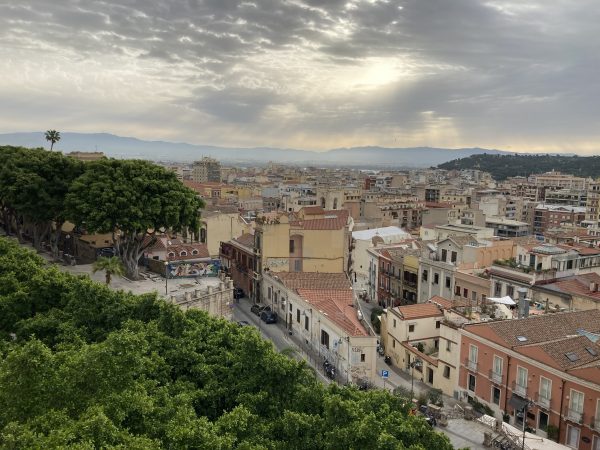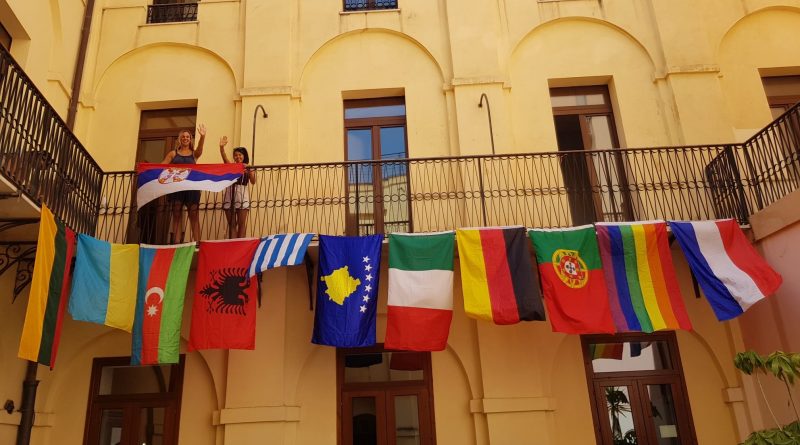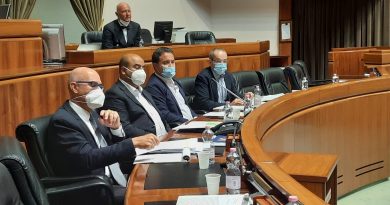Šta me je pet meseci života na Sardiniji Naučilo o Srbiji?
Život u inostranstvu se često gleda kao podrška odlivu mozgova. Ipak, tek kad napustimo zemlju u kojoj smo živeli čitav život, možemo da shvatimo da ne postoji univerzalni način oblikovanja stvarnosti i da učimo o različitosti iz drugačije perspektive. Ono što sam ja iz života na Sardiniji naučila o Srbiji jeste sledeće:
VAŽNO JE NEGOVATI TRADICIJU. A za iskreno negovanje tradicije i običaja svoje zemlje, neophodno je da ih razumemo. U kontaktu sa strancima koji su pokušali da se upoznaju sa običajima Srbije dobila sam mnogo različitih pitanja na koja nisam znala odgovor. Ona su mi pomogla da preispitam i istraživim dublja značenja srpskih običaja i verovanja, a samim tim i da se bolje povežem sa njima.
ČASOVI ISTORIJE NE SPADAJU U KATEGORIJU „ŠTA ĆE MI OVO U ŽIVOTU?“ Znati istoriju svoje zemlje znači ne propuštati priliku da se čuje druga strana priče. Svi imamo svoju verziju gradiva koje smo pročitali u knjigama, ali niko ne može da razume bolje šta se kroz istoriju dešavalo u mojoj zemlji od ljudi koji su tu istoriju gradili. I mene same, koja sam tu istoriju živela.
JEZIK SE BRZO UČI, JOŠ BRŽE ZABORAVLJA. Ne samo strani jezik, već i maternji. Zato je važno koristiti svaku priliku za čitanje, pisanje, pričanje i obnavljanje stečenog znanja.
NGO SEKTOR U SRBIJI JE VEOMA SNAŽAN. Nije mala stvar imati KOMS koji ujedinjuje više od sto različitih organizacija u Srbiji i NAPOR koji godinama vredno radi na prepoznavanju omladinskog rada kao zanimanje.
BILO BI MNOGO LAKŠE DA JE SRBIJA U EVROPSKOJ UNIJI. Sigurna sam da ulazak u Evropsku Uniju ima i negativne strane, ali bilo bi lakše. Za putovanje (posebno u vreme korone), za rad i život van zemlje.
WHAT FIVE MONTHS OF LIFE IN SARDINIA HAVE TAUGHT ME ABOUT SERBIA?
Living abroad is often seen as supporting brain drain. However, we can realize that there is no universal way of shaping reality and we can learn about diversity from a different perspective only when we leave the country in which we have lived all our lives. What I learned about Serbia from my life in Sardinia is the following:
IT IS IMPORTANT TO NURTURE TRADITION. And for sincerely nurturing the traditions and customs of our country, we must understand them. In contact with foreigners who tried to get acquainted with the customs of Serbia, I got many different questions I didn’t know the answer to. I started to rethink and explore the deeper meanings of serbian values and beliefs and better connect with them.

HISTORY CLASSES ARE NOT PART OF THE CATEGORY “WHY DO I NEED THIS IN LIFE?” Knowing the history of your country means not missing the opportunity to hear the other side of the story. We all have our version of the material we have read in the books, but no one can better understand what has happened in my country throughout history than the people who built that history. And myself, who lived that history.
LANGUAGE IS FAST FOR LEARNING, FOR FORGETTING EVEN FASTER. Not only a foreign language but also a mother tongue. That is why we should use every opportunity to read, write, talk and renew the acquired knowledge.
THE NGO SECTOR IN SERBIA IS VERY STRONG. It is not a small thing to have KOMS, which unites more than a hundred different organizations in Serbia, and NAPOR, which has been working hard for years to recognize youth work as a profession.
IT WOULD BE MUCH EASIER IF SERBIA IS IN THE EUROPEAN UNION. I am sure that joining the European Union has its weak sides, but it would be easier. For travel (especially during the Covid-19), work and life abroad.
Sara Đurđević
Foto Sardegnagol, riproduzione riservata



